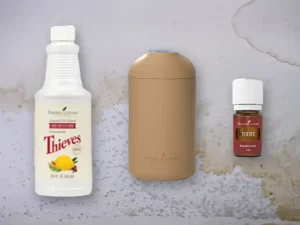What is a Carrier Oil?
Carrier oils are fatty oils and may be referred to as vegetable oils, fixed oils, or base oils. They are different from essential oils in how they are collected. Many of them are cold pressed from seeds or nuts, not steam distilled like essential oils. Their role in the plant is to feed the new life in the seed or nut until the plant grows They are not very aromatic, do not evaporate and will go rancid over time.
What does a Carrier Oil Do?
A carrier oil such as coconut oil or grapeseed oil can be used to dilute essential oils and “carries” the essential oil in to the body. They ensure that essential oils which are applied topically are comfortable, particularly if you are wanting to use a warm or hot oil.
Contrary to what some people believe dilution with a carrier oil does not dilute the effect of the essential oil, and prevents waste due to excessive application.
Why Use A Carrier Oil?
The main reason we use a carrier oil is to dilute essential oils. This not only makes them safer but helps them get into the body more easily. Essential oils are fat soluble which means they dissolve into fat. Essential Oils can more easily travel through the skin and get into our bloodstream if they are diluted in a carrier oil.
I use a carrier oil in skin care products as they provide properties such as being emollient or soothing to the skin. Each carrier oil offers different properties and the choice of carrier oil can depend on the therapeutic benefit you are looking for.
Which Carrier Oil should I use?
This all depends on your skin type and the purpose for which you are using a Carrier Oil for.
Below is a great guide as to which carrier oil to use for which application.

What is the best carrier oil for skincare?
Did you know carrier oils can be drying, semi-drying or non-drying?
Non-drying carrier oils are the best carrier oils for skincare- these are useful for dry skin that needs oil*:
Almond Oil
Castor Oil
Cocoa butter
Olive Oil
Palm Oil
Peanut Oil
*Dry skin that needs water needs to be hydrated with hydrosol spray.
Semi-drying Oils – these are more suitable for normal to oily skins:
Sesame Oil
Sunflower Oil
Drying Oils – these are more suitable for oily skins but are best used when mixed with other oils:
Linseed Oil
Hempseed Oil
What are Carrier Oils Examples?
Apricot Kernel
Argan
Avocado
Borage
Camellia
Castor
Coconut
Evening Primrose
Flax
Grape seed
Hazelnut
Hemp
Jojoba
Kukui
Macadamia nut
Olive
Peanut
Pecan
Pistachio
Sesame
Sunflower
Sweet Almond
Walnut
Wheat germ
Is Vasoline a carrier oil?
Petroleum derivatives (petrolatum jelly), vegetable shortening, butter or margarine should never be used as carrier oils.
Is Olive Oil a Carrier Oil?
Yes however some consumers choose to avoid olive oil as a carrier oil because of its strong aroma and thick viscosity.
How Do I Buy Carrier Oils?
There are a few things to consider:
1. Cold-pressed – Make sure the oils you are buying are cold-pressed and not heated. Oils that have been heated lose their therapeutic benefit.
2. Eating and skin care – Make sure the label says that it is for eating and skin care.
3. Don’t buy Mineral oil. Mineral oil is NOT a natural product and should not be used with essential oils. It may even prevent the essential oils from being absorbed into the skin.
What is the best carrier oil to buy?

I recommend Young Living’s V6 Vegetable Oil
Young Living’s V-6 Vegetable Oil Complex is an excellent carrier oil for all applications. V-6 Enhanced Vegetable Oil Complex is used to dilute certain essential oils and can be mixed to create custom blends, formulas, and massage oils.
This oil complex nourishes the skin, has a long shelf life, doesn’t clog pores, and will not stain clothes.










 Subscribe to Hot Oily Mumma
Subscribe to Hot Oily Mumma